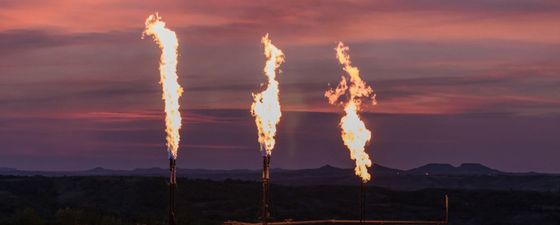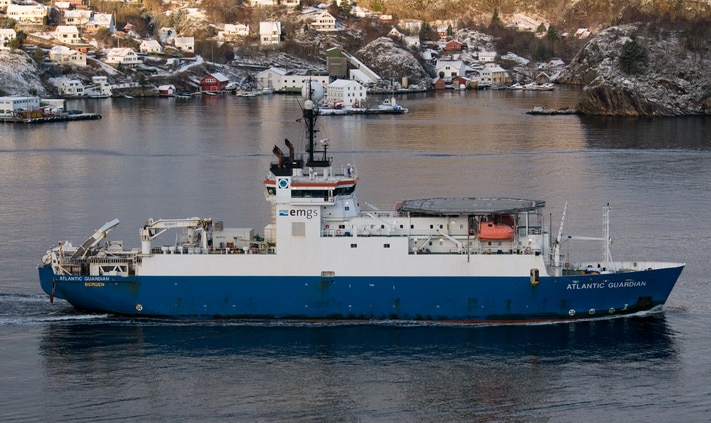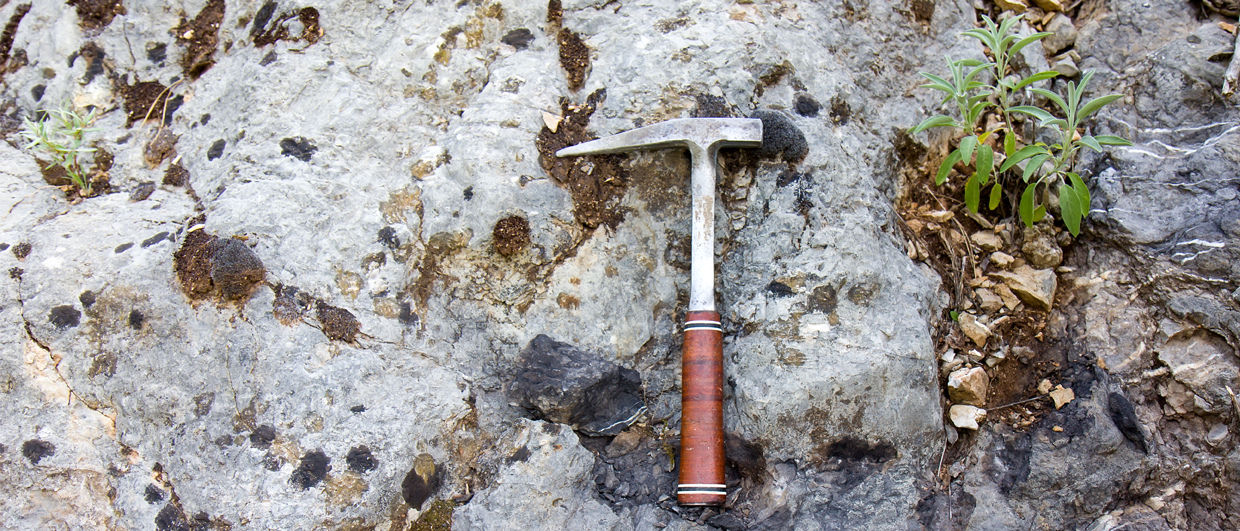Africa’s total proven reserves stand at 125.3 Bbo and 509 Tcf natural gas, 7.5% and 7.1% respectively of the global total. What are the main challenges and opportunities for future oil and gas exploration in Africa?
Despite the downturn in oil prices, exploration for oil and gas has continued in Africa, although with a concentration on the ‘low-hanging fruit’ represented by low risk wells in areas of existing production that would yield rapid results. As a result, total exploration spend in the region dropped to a low point of ~US$5,000 million in 2017, resulting in a big drop in discovered volumes in 2018.
Rig being repaired in the port at Cape Town, South Africa. Source: 123rf.com/Vladyslav Morozov.
As the oil price recovers, however, there are signs that explorers are getting ready to look further afield in Africa, to frontier areas and new countries, spurred partly by continuing economic growth on the continent.
Average GDP growth for Africa reached an estimated 3.5% in 2018, and is projected to accelerate to 4% in 2019 and 4.1% in 2020. There are also signs that political change is underway in many countries, such as in the Democratic Republic of the Congo, which experienced its first post-independence democratic transition of power late last year, and Ethiopia, which is making great strides towards democracy. Another cause for regional optimism is the ongoing trade talks towards continental political and economic integration, promising to facilitate frictionless trade and bring economic benefits to all.
With economic growth will come an increased demand for energy, and a number of countries are looking to capitalize on that by encouraging exploration companies to their part of Africa through bidding rounds, either underway already or due to open in the near future.
Optimistic Future for Gas Product in Africa
Global gas consumption rose by 5.3% between 2017 and 2018, one of the fastest growth rates since the 1980s, largely driven by the US, China, Russia and Iran. Africa’s gas production, meanwhile, grew by 8% in 2017, primarily due to the discovery of large fields like Egypt’s Zohr, which alone could meet half that country’s demand. This growth in gas production is expected to continue as demand increases, particularly through gas-to-power initiatives throughout the continent. Rapid increases in population, particularly in gas-producing countries such as Egypt, Algeria, Nigeria and Ghana, is one of the key drivers for this growth.
Gas flares in North Africa.
A number of liquified natural gas (LNG) projects are progressing across the continent, such as Eni’s Coral South floating liquefied natural gas (FLNG) project in Mozambique and an Anadarko-led LNG project in the same country. A recent agreement between the operators and the governments of Senegal and Mauritania to develop the giant (>15 Tcfg) gas field which crosses the border between the two countries means that the Greater Tortue Ahmeyim FLNG project should be up and running in 2022.
Stranded gas is a target for future exploration, especially near older, declining fields. Efforts being made to reduce flaring, especially in Nigeria, where roughly 15% of gas produced is currently flared, will also bring more gas into the market.
Deepwater Hydrocarbon Exploration Promising in Africa
Deepwater drilling in frontier regions of Africa is on the rise as companies have more money to spend on this high risk/high reward environment. Some of this will be in already producing countries such as Nigeria, where, for example, FID is expected on the Bonga South West deepwater project very soon. Exploration is continuing in the deep water off Senegal, while Total’s recent play-opening deepwater discovery of Brulpadda earlier in 2019, with a reported 1 Bboe resources, has rejuvenated interest in the deep water offshore South Africa.
Africa oil and gas exploration spend by region, 2010–2030. Source: Rystad Energy, PwC Strategy&.
A number of countries are offering deepwater and ultra-deepwater blocks in their upcoming bidding rounds. These include Congo Brazzaville, which is offering five offshore blocks in deep and ultra-deep waters in its ongoing licensing round, and Gabon, where last year Petronas announced an oil discovery in ultra-deepwater block F14. The Gabon licensing round includes 23 blocks in deep water. Several high impact wells due to be drilled in Africa in coming months are in deep water. Total plans a well on Block C-9 offshore Mauritania and another in the ultra-deepwater of the Congo Basin. The company is also aiming to drill the giant Venus prospect off Namibia later this year, with what will be the deepest well ever undertaken on the continent.
Positive Outlook for Oil and Gas Exploration in Africa
There is definitely a sense of positivity in the African oil and gas arena, according to a new report released by Menas Associates in conjunction with Africa Oil Week, Africa Oil and Gas Outlook 2019, which can be downloaded for free from the Africa Oil Week website. Their experts predict that 2019 and beyond will see an increase in offshore exploration and mega gas finds, along with the development of trans-continental pipelines, gas-to-power initiatives and refining potential.
There are challenges ahead, however, the report points out. Worldwide, continuing US China trade tensions are having a negative impact on the global economy, and with it, foreign direct investment into Africa, while rising US unconventional oil and gas production is also putting pressure on demand for African oil. Additional strain is being put on the market by regulatory uncertainty as various political and financial trends impact on policy making, while the rise of resource nationalism in some countries might act as a barrier to investment. Corruption and transparency have long been an issue in Africa and the increasingly stringent US and European anti-corruption legislation has made detailed due diligence and transparency essential for success on the continent.
Overall, however, so long as African countries can rise to the challenges inherent in ensuring they remain globally competitive, there is a diverse array of opportunities available across the whole oil and gas value chain in Africa.
Further Reading on Oil and Gas Activity in Africa
New Seismic Data from Morocco Reveals Fascinating Geological Insights
Steve Lawrence; SRC for Geoex
High-resolution 2D seismic data acquired by Geoex provides new clues to crustal architecture and deformation history in Atlantic Offshore Morocco.
This article appeared in Vol. 16, No. 3 – 2019
The Chase for Oil in Offshore Somalia
Karyna Rodriguez, Neil Hodgson and David Eastwell, Spectrum Geo; Abdulkadir Abiikar Hussein, Mopmr, Federal Government of Somalia
New seismic data studies from Spectrum indicate high potential for hydrocarbon exploration in offshore Somalia, with excellent opportunities on offer in the region’s 1st Licencing Round.
This article appeared in Vol. 16, No. 1 – 2019
Exploration Update: Deepwater Gas Discovery Offshore South Africa
GEO ExPro
Total announce significant gas-condensate discovery in the deepwater Outeniqua Basin, offshore South Africa.
This article appeared in Vol. 16, No. 1 – 2019





